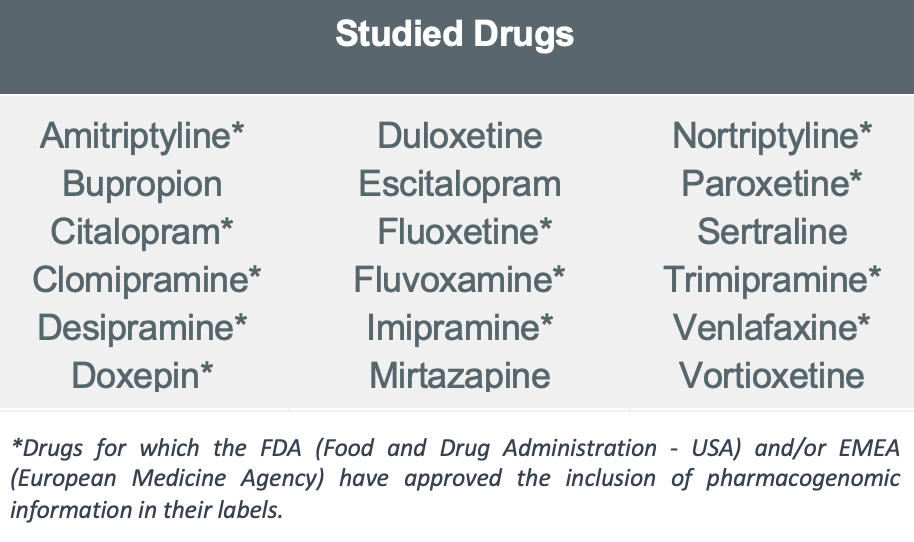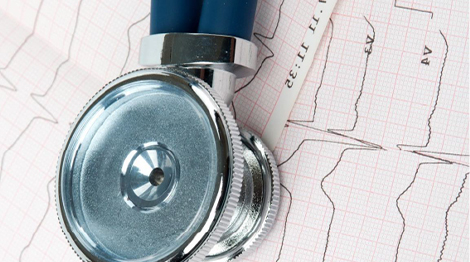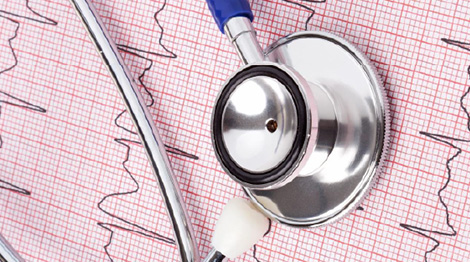FG Neuro Depression
Pharmacogenetics of depressive disorder
Why undergoing this examination?
The prevalence of depression in the general Brazilian population is approximately 3%, with the frequency of depression in women being almost twice that in men. In this scenario, an annual incidence of 1-2 thousand cases developing into major depressive disorder is estimated. There is a wide variety of antidepressant medications and psychotherapies that can be used to treat depressive disorders. Despite the correct administration of these, many patients do not achieve expected results, presenting an inadequate response or the presence of adverse effects. The lack of effect of pharmacological treatment for depression can be largely due to genetic causes, as variation in the human genome is one of the main factors modulating responses to drug metabolism. In this context, Pharmacogenetics can be an important tool in the search for success in prognoses and patient treatments.
What is this exam?
The FG Neuro Depression pharmacogenetic panel evaluates variants in genes responsible for the expression of the main enzymes involved in the metabolism of antidepressant drugs, providing relevant information about the 18 most used drugs in studies of genetic variants described in the scientific literature, present in the genes of the cytochrome P450 family: CYP2C19 and CYP2D6.
For whom is it indicated?
- Patients with depressive disorders who want to personalize treatment based on their genetic profile;
- Patients undergoing pharmacological treatment that does not yield expected results.
Technology
Next-generation sequencing (NGS).
FG Neuro Depression
Pharmacogenetics of depressive disorder
The prevalence of depression in the general Brazilian population is approximately 3%, with the frequency of depression in women being almost twice that in men. In this scenario, an annual incidence of 1-2 thousand cases developing into major depressive disorder is estimated. There is a wide variety of antidepressant medications and psychotherapies that can be used to treat depressive disorders. Despite the correct administration of these, many patients do not achieve expected results, presenting an inadequate response or the presence of adverse effects. The lack of effect of pharmacological treatment for depression can be largely due to genetic causes, as variation in the human genome is one of the main factors modulating responses to drug metabolism. In this context, Pharmacogenetics can be an important tool in the search for success in prognoses and patient treatments.
The FG Neuro Depression pharmacogenetic panel evaluates variants in genes responsible for the expression of the main enzymes involved in the metabolism of antidepressant drugs, providing relevant information about the 18 most used drugs in studies of genetic variants described in the scientific literature, present in the genes of the cytochrome P450 family: CYP2C19 and CYP2D6.
- Patients with depressive disorders who want to personalize treatment based on their genetic profile;
- Patients undergoing pharmacological treatment that does not yield expected results.
Next-generation sequencing (NGS).
Advantages
SYNLAB GROUP
Guaranteed by the experience of the absolute European leader in laboratory diagnostics.
COMPLETE
Detailed report including, in addition to the type of metabolism of each enzyme, which drugs may cause toxic effects and adverse reactions, as well as recommendations regarding doses.
Extra Information
DOCUMENTATION – Available on the SYNLAB Direct for clients
- Informed Consent;
- Clinical Questionnaire;
- Medical Request.
PREPARATION
- Fasting is not necessary for the test.
Additional Information


Delivery Time
22 business days

Sample Type
5mL of total blood in EDTA
















